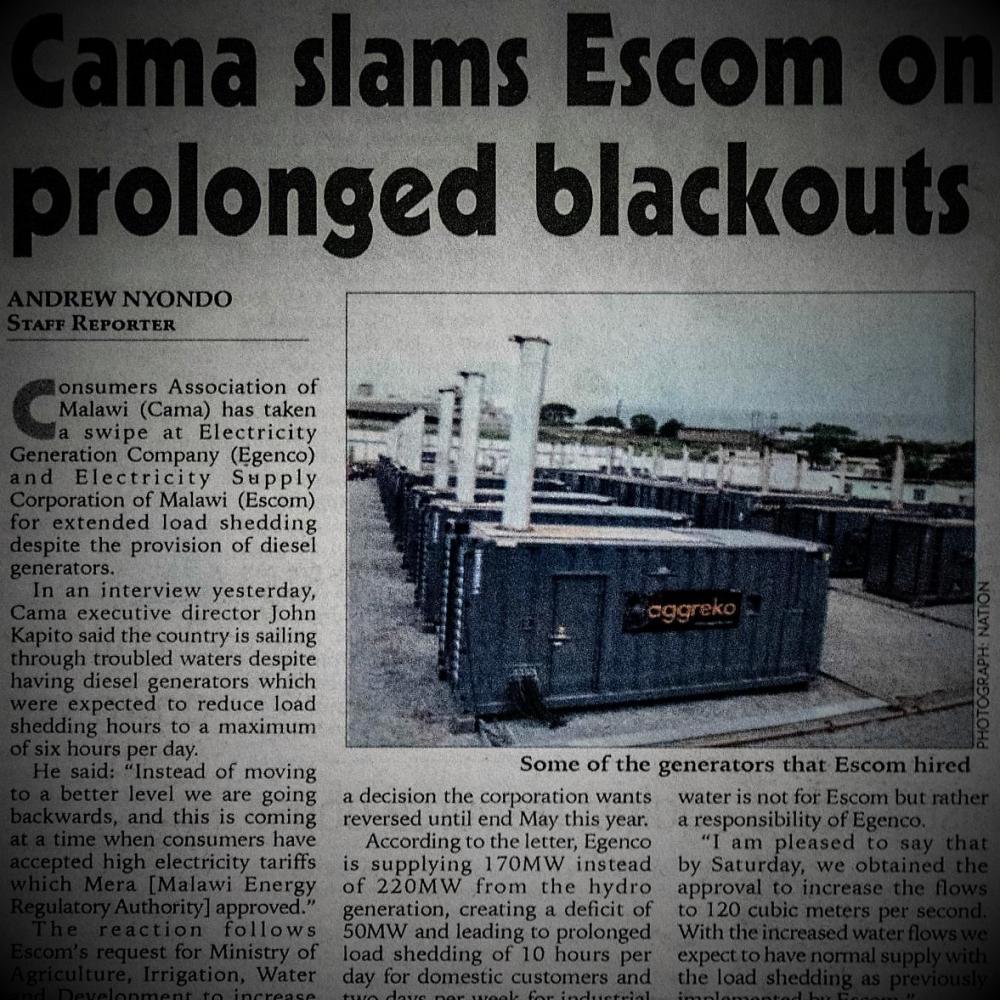
Consumers Association of Malawi (Cama) has taken a swipe at Electricity Generation Company (Egenco) and Electricity Supply Corporation of Malawi (Escom) for extended load shedding despite the provision of diesel generators.
In an interview yesterday, Cama executive director John Kapito said the country is sailing through troubled waters despite having diesel generators which were expected to reduce load shedding hours to a maximum of six hours per day.
He said: “Instead of moving to a better level we are going backwards, and this is coming at a time when consumers have accepted high electricity tariffs which Mera [Malawi Energy Regulatory Authority] approved.”
The reaction follows Escom’s request for Ministry of Agriculture, Irrigation, Water and Development to increase the level of water flow in Shire River to allow Egenco generate enough megawatts (MW) for power supply.
The letter, signed by the corporation’s chief executive officer Allexon Chiwaya, argues that the Ministry of Agriculture, Irrigation and Water Development recently decided to reduce the flow of water to 110 cubic metres, a decision the corporation wants reversed until end May this year.
According to the letter, Egenco is supplying 170MW instead of 220MW from the hydro generation, creating a deficit of 50MW and leading to prolonged load shedding of 10 hours per day for domestic customers and two days per week for industrial customers.
But in a separate interview, Egenco senior public relations officer Moses Gwaza said it is not Escom’s responsibility to request the ministry for increased water flow.
He said: “Egenco was negotiating for the water through its own mechanisms. You may wish to know that the issue of water is not for Escom but rather a responsibility of Egenco.
“I am pleased to say that by Saturday, we obtained the approval to increase the flows to 120 cubic meters per second. With the increased water flows we expect to have normal supply with the load shedding as previously implemented by Escom.”
But in her remarks, political commentator Emily Mkamanga blamed the two institutions for opting for a short-term solution to ending blackouts.
It is expected that 20MW will be added to the national grid from Zambia Electricity Supply Corporation (Zesco) and another 23MW from Aggreko which will plant its machines at Chinyama.
